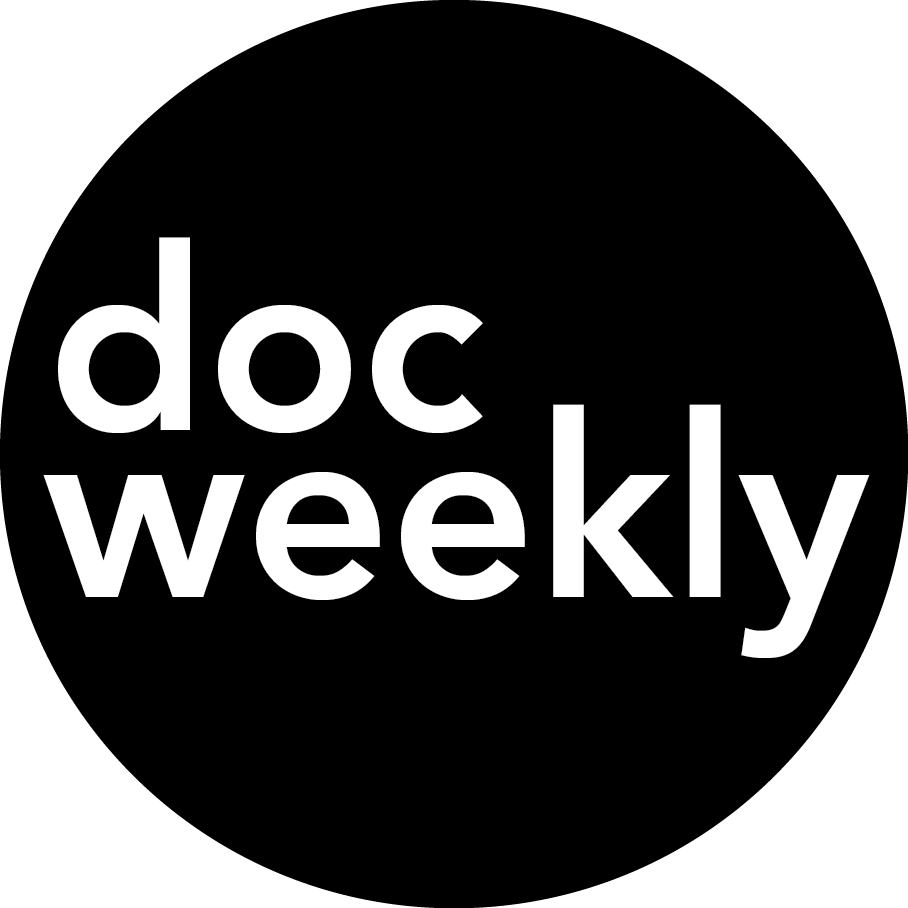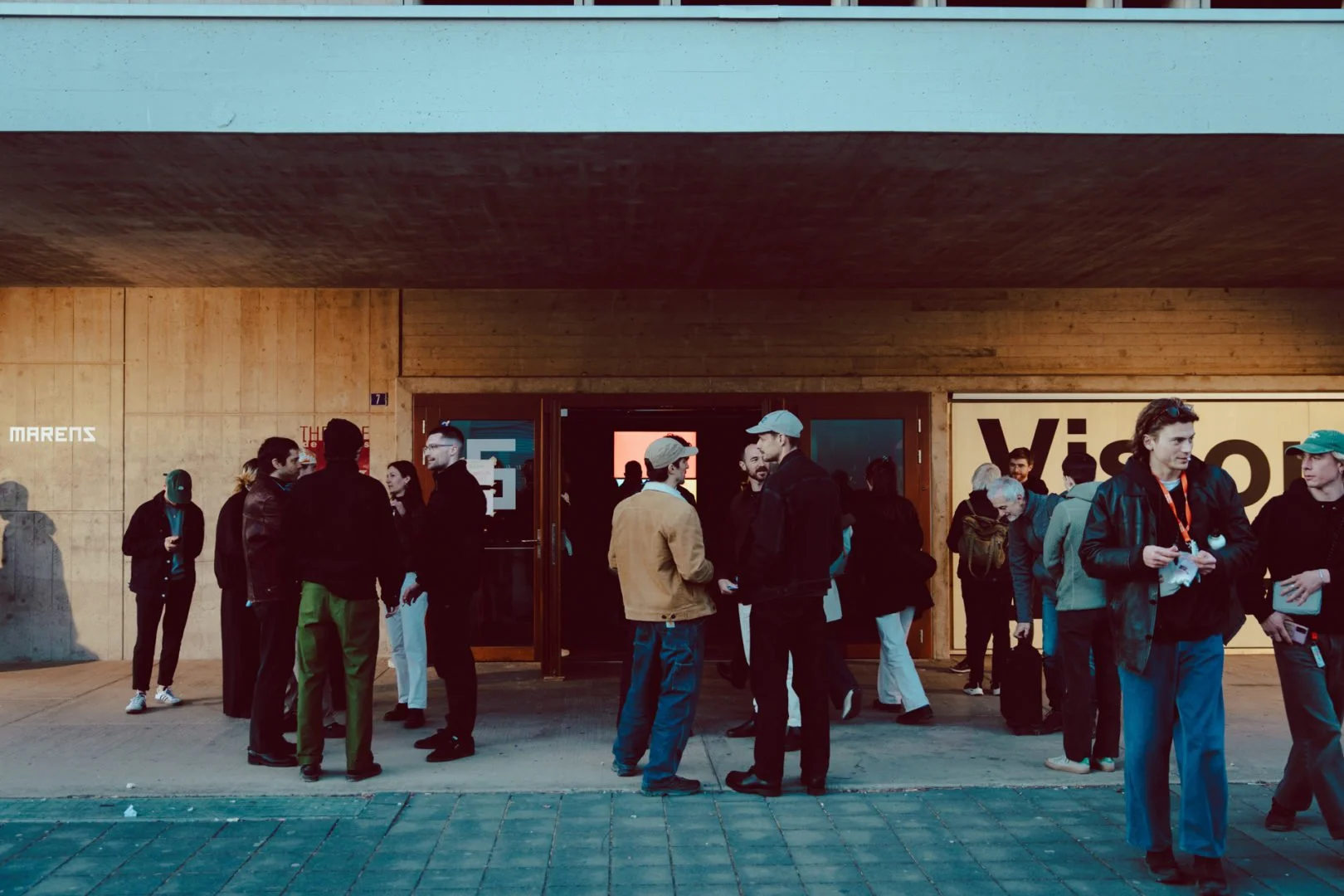Doc Weekly's Tips for Cinéma du Réel 2020
The 42nd edition of Cinéma du Réel kicks off in Paris this week and we can’t wait to dig in to this year’s selection. Doc Weekly will be in attendance, keeping an eye out for future classics, interviewing directors and keeping you all updated on social media along the way.
Get in touch to meet up, be interviewed or just to have a chat! You can purchase tickets online here.
But first, here are our top picks from this year’s line-up.
International Selection
The first international film to catch our eye is the short “Reserve”. In the forests of the Spanish Basque country, sinister rituals take place: animal carcasses are dumped by a mechanical shovel, and men armed with bows and arrows shoot at foam creatures. Since the extinction of the area’s natural predators, wolves, these are the lengths to which man must go to balance the natural order that he has irreversibly upset. In addition to a timely meditation on our duty to maintain the ecosystem, there’s an underlying creepiness to which the trailer attests, with shots shrouded in fog and off-camera voice ordering predator scent over the phone - we’re excited to find out more.
Next we’re looking forward to catching “Limbo”, a film we missed at Sheffield Doc/Fest last year. To interview Alex, a former FARC guerilla member, director Alexander Fattal turned a truck into a camera obscura. Not only does his choice grant the film its peculiar atmosphere, it also sets the scene for Alex to plunge into the depths of his soul and confront the devil inside him. In his own words “If you’re trained with the pistol, it’s not to do good”.
“The Art of Fallism” focuses on the university protests that sparked South Africa’s #Feesmustfall movement. Demanding decolonisation of the university and the end to all forms of repression in the former apartheid state, suddenly the students find themselves the target of attacks by the university leadership, police and army, while internal conflicts threaten to tear the movement apart. Described as an African cultural re-awakening, the sheer energy, youth and hope of the movement is laid bare in directors Aslaug Aarsæther and Gunnbjørg Gunnarsdottir empowering film.
French Selection
With a year of violent protests, gridlocking strikes and the ongoing rise of identity politics, it’s not surprising that this year’s French selection is inextricably linked to ongoing national debates and social unease. There’s even a workshop on the role of filmmakers in documenting police brutality during the festival.
Our first pick, “Demain le Feu”, weaves all these topics together. Focused around a happen chance road trip from Calais to Marseille in 2017, the films sets out to hear the voices of the unheard, their desires, hopes, fears and frustrations. The result is a nascent manifesto of the later named “Gilets Jaunes” movement and an introduction to some of its underlying motivations. Narrated by Gerard Depardieu, part of the film’s interest lies in its directors Mehdi Meklat and Badroudine Saïd Abdallah. The famous young writing duo from the disadvantaged Parisian suburb of Bondy will no doubt bring a fresh and cutting new interpretation to the fore.
We’ll also be sure to catch “Gevar’s Land” by Qutaiba Barhamji, an insightful observation of a Syrian family’s insertion into French society. Far from his Syrian orchard in the outskirts of Reims, Gevar is set on working the land. He rents a small plot and installs himself locally with his wife and child. Slowly, he tries to integrate his environment and te film observes both his successes and failures over the course of four seasons.
Still from "Gevar’s Land” by Qutaiba Barhamji
A welcome break from burning societal issues will be ”This Means More”, an experimental leap back in time to Liverpool FC’s darkest day with the use of modern crowd simulation technology. On the 15th of April 1989, 96 people lost their lives in the “Hillsborough Disaster”, a perfect storm of poor design, poor policing and the commoditisation of the world’s most popular sport. By setting the machines and stadium design techniques in place today to the backdrop of Liverpool supporters’ witness accounts, director Nicolas Gourault hopes to trigger deeper thought on the ethics of monetising a sport that attracts dangerously large crowds.








